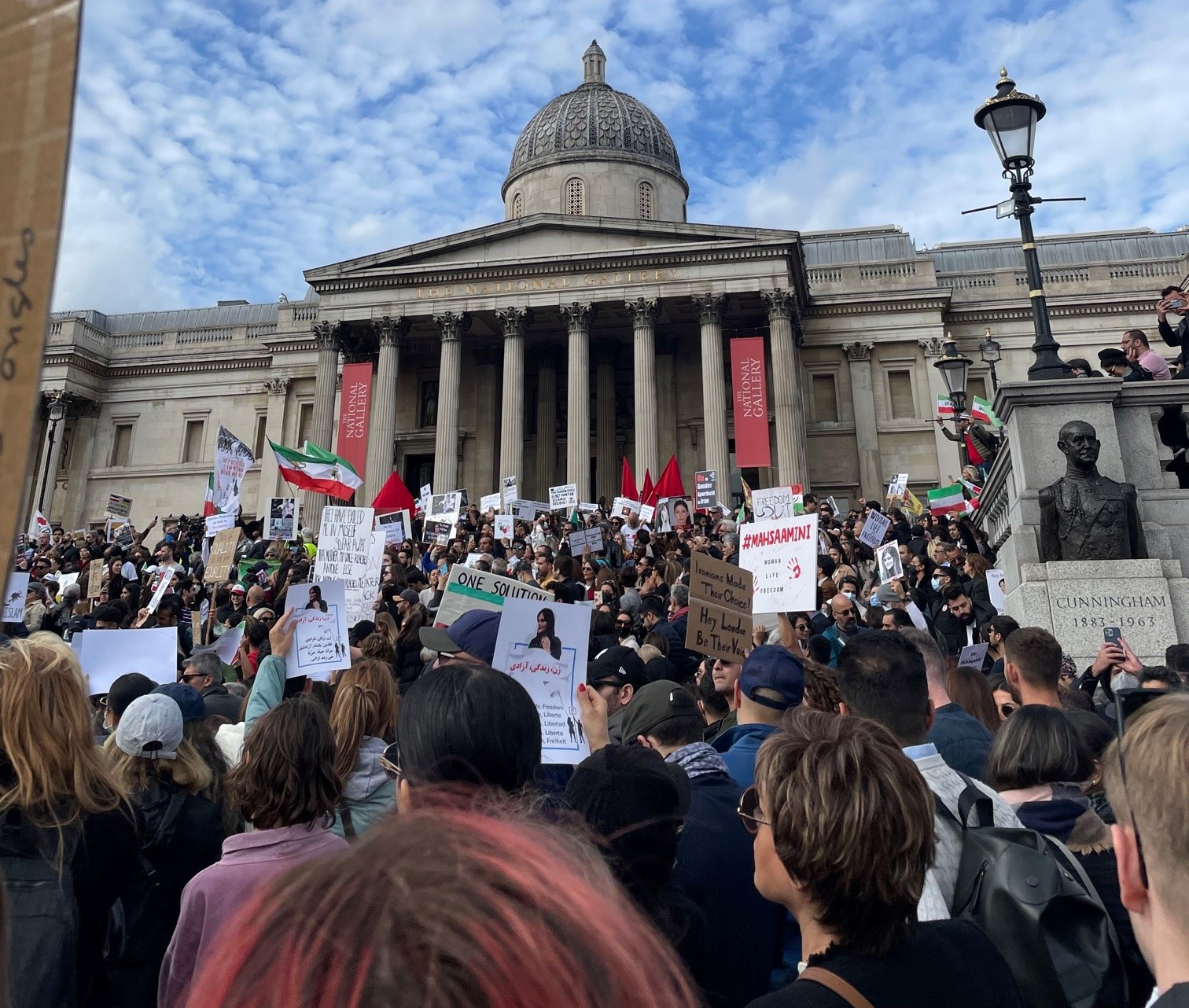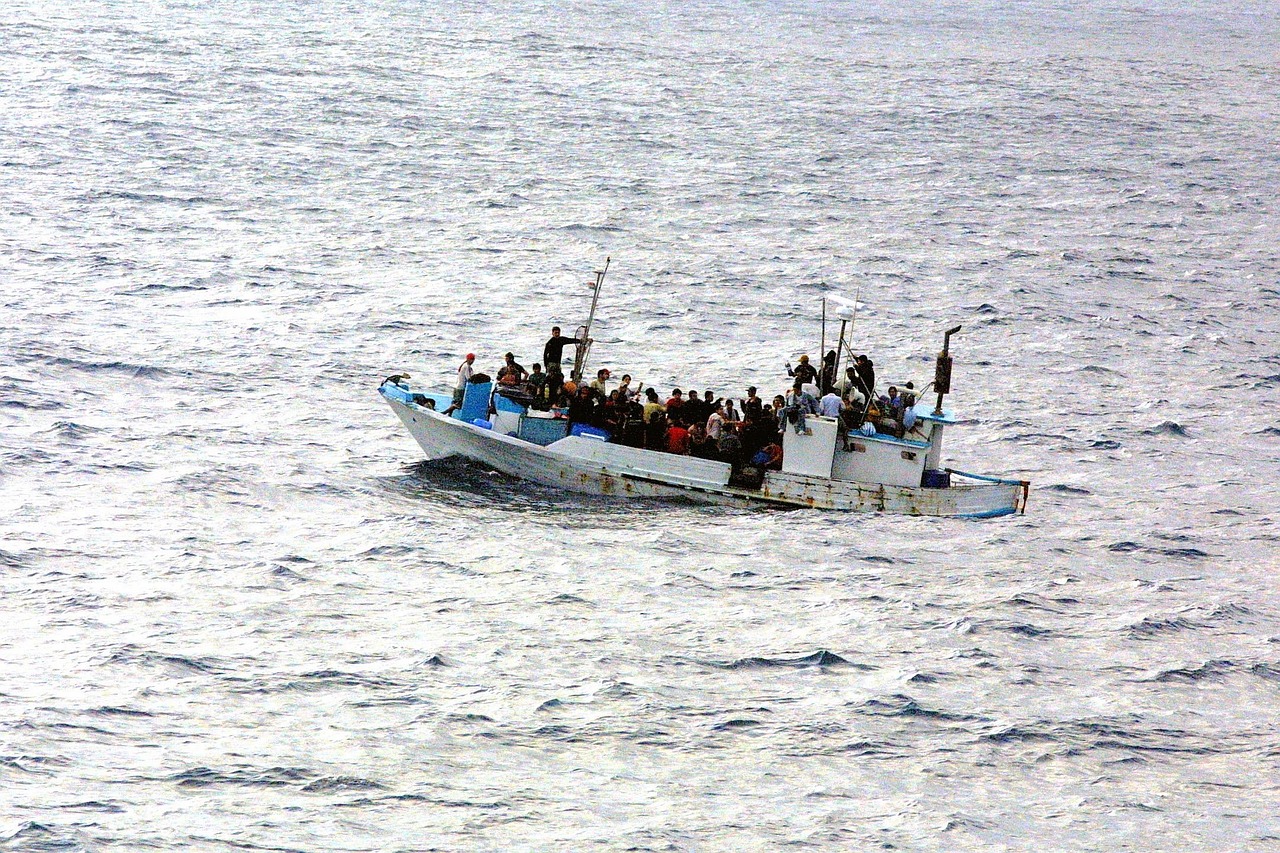Roar writer Alessandro Kosak speaks with Rory Biggs O’May, team leader of Human Rights Observers, on human rights abuses in Calais refugee camps.
After the well-documented destruction of the Calais “Jungle” in 2016, French authorities have embarked on a policy of harassment aimed at avoiding a “fixation point” of refugees to stem the possibility of another jungle-like structure.
The election of Emanuel Macron in 2017 was a hopeful return to French centrism and liberty, especially in the face of the impending electoral threat that the French National Front and Marine Le Pen posed. Almost four years since his election, Macron has had a disappointing tenure, especially in regards to the human rights of asylum seekers and refugees.
The infamous Calais “Jungle” is a constant reminder of Europe’s failure to adopt a humanist approach to the refugee crisis, frequently espousing images of sub-human living conditions with no real infrastructure or organisation. The stories were telling; migrants paid thousands of euros to make the treacherous and often fatal journey across the Mediterranean and Europe, only to find themselves in similar or oftentimes worse conditions that they left. Its destruction could have paved the way for organised infrastructure, aimed at housing refugees while asylum forms were processed.
What has emerged instead is several camps dotted around the area and a police force with the power to illegally evict and harass refugees to avoid another established “jungle”.
As per Louis Le Franc, a top official in the Pas de Calais, “we want to avoid a concentration and a new gathering point in Calais.â€Â It is evident that policy seems to be wrongly focused on security rather than humanitarian efforts. This focus was already apparent in 2016 with the UK contributing funds to a £17 million Anglo-French security measure agreement to enact large concrete walls in the vicinity. Additionally, former PM Theresa May pledged £44.5 million to Calais border security in 2018. Amnesty international correctly pointed out at the time that the “Great Wall of Calais” wouldn’t stop immigrants from crossing over, it would just make it more dangerous.
The obsession with security has reinforced a culture of abuse in the camps, with police frequently breaching human rights as reported by the several human rights observers operating in the camp. I spoke to one of them, Rory Biggs O’May, team leader at Human Rights Observers, who gave a damning report on just how deliberately poor conditions are in the camps.
What conditions are the refugees forced to live in?
“Difficult to summarise totally the living conditions. In lieu of adequate access to accommodation in the area, displaced people living in Calais are forced to live in tents situated on disused land. Groups of people set up tents around fires where they cook food and keep warm. The areas are subject to frequent flooding during the winter months. Items that might constitute a place of life like tents, firewood, food stores etc. are subject to arbitrary confiscation during evictions.â€
How common are evictions?
“Evictions occur at each place of life every 48 hours.â€
What other type of human rights abuses are there?
“There are few basic human rights which are met by the state for displaced people living in Calais. There is a deeply insufficient lack of access to basic rights like water and sanitation—the support from the French state does not even remotely meet the Sphere Standards for access to water. Right to housing is violated by the non-existing local accommodation centres as well as insufficient accommodation centres further away. The right to peaceful family life and freedom from torture are violated during evictions, during which tents are shaken and kicked by police officers while people are sleeping inside. Access to information and legal support is non-existent. Right to liberty and security of person is violated by arbitrary arrests and illegal stays in detention centres.â€
Which police force are the main perpetrators of said abuse?
“Gendarmes and Police Nationale carry out evictions and thus violate the right to peaceful family life and freedom from torture. Police Aux Frontieres carry out arbitrary arrests and thus violate the right to liberty and security of a person. CRS carry out major eviction operations and are also frequently testified against for acts of arbitrary violence during the night, violating freedom from torture and freedom from violence.â€
What laws have restricted the ability of human rights organisations to adequately observe abuses?
“‘Security perimeters” specifically designed to keep HRO volunteers away from operations and unable to observe, based entirely on racial profiling as ‘refugees’ are allowed in but HRO volunteers are not. Gendarme officers move their vans to purposefully obstruct HRO’s view. Documenting violations of human rights during police evictions operations is defined as inessential work and is thus prohibited during the Covid-19 confinements. Consequently, HRO has been fined a number of times by the police forces during these operations.â€
Does the French Government offer any type of support to refugees?
“La Vie Active has been mandated by the state to provide sufficient amounts of food and water to displaced people living in Calais; does not reach Sphere Standards. Access to housing is somewhat provided, but is very limited: accommodation centres are far away and there is an insufficient number of places. Plan Grand Froid to provide emergency housing during cold months; only available in times of extreme cold.â€
As Covid-19 continues to dominate national policies, the future of the camp seems to be increasingly concerning. The destruction of the “Jungle” could have paved the way for a settled infrastructure for processing migrants and refugees. Instead, both the UK and French governments have adopted a cruel and security orientated stance, giving increasing power and support to police forces that continue to violate basic human rights.
If you would like to support HRO initiatives designed to support the refugees in Calais, here are some links:
Additionally, a human rights report published in 2019 provides a harrowing and excellent detailed exploration of forced evictions in Calais.















